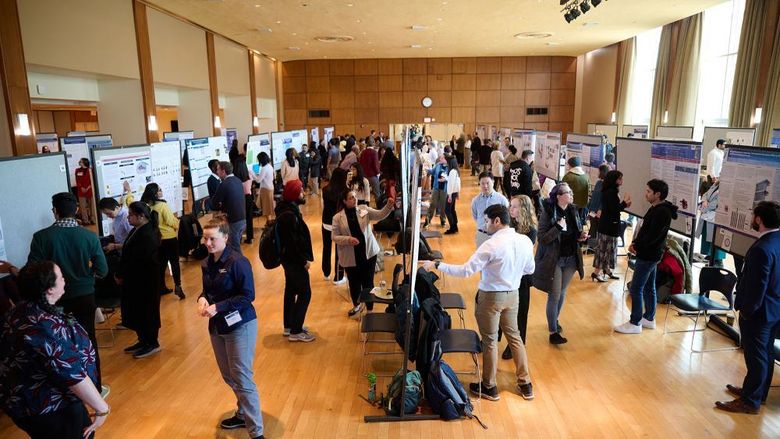UNIVERSITY PARK, Pa. — The Penn State Center for Socially Responsible Artificial Intelligence (CSRAI) has announced the results of its most recent seed funding competition. The center awarded over $105,000 to five interdisciplinary research projects that feature teams of researchers representing six colleges and campuses. One of the projects received additional funding of $15,000 in services from Penn State’s Institute for Computational & Data Sciences.
Each proposal was evaluated by peers for its connection to the center’s mission, intellectual merit, and potential for securing external funding. Funding will support the formation of interdisciplinary research teams and early-stage projects that demonstrate strong potential to obtain external funding. Projects are expected to start this spring and last for up to two years.
“Generative AI dominated the competition this year, with most of the winners involving large language models (LLMs),” said S. Shyam Sundar, CSRAI director and James P. Jimirro Professor of Media Effects in the Donald P. Bellisario College of Communications. “The winning proposals cover the gamut, from exposing limitations of LLMs to proposing innovative applications using this technology to exploring the ethics of using it.”
Synopses of the awarded proposals are shared below, with full abstracts available on the center’s website.
This proposal aims to answer how well state-of-the-art large language models can handle code-mixed data and how their performance compares to Natural Language Processing (NLP) methods that are explicitly designed to handle code-mixed text. This project is jointly funded by the Institute of Computational and Data Sciences.
- Amulya Yadav, College of Information Sciences and Technology
- Rebecca Passonneau, College of Engineering
- Ritu Jayakar, College of the Liberal Arts
“Engaging AI Healthcare Imaginaries through the Arts and Humanities”
This project aims to address socially responsible ways of using, building, and deploying AI technology in healthcare by approaching AI from the perspective of the humanities and the arts, emphasizing AI as a broad sociocultural phenomenon.
- Bernice Hausman, College of Medicine
- Michael Green, College of Medicine
- Priscilla Song, College of Medicine
- Jennifer McCormick, College of Medicine
- Anthony Buccitelli, Penn State Harrisburg
This project proposes MathMentor, an AI-based math tutoring system empowered by large language models. Drawing insights from cognitive theories on problem-solving and theories on STEM education, MathMentor aims to leverage the language and reasoning capabilities of large language models to provide step-by-step guidance in problem-solving, identifying and addressing common misconceptions, and offer personalized explanations of mathematical concepts in real-time.
- Qingyun Wu, College of Information Sciences and Technology
- Xiaolong Zhang, College of Information Sciences and Technology
- Ellen Wenting Zou, College of Education
“Mitigating Linguistic Discrimination of LLMs in Assessing English Learners”
This project proposes to investigate and understand linguistic discrimination arising from LLM-generated automated writing assessments which may favor standard English writing over other English dialects spoken by African American or Hispanic students in the US or by people in other English-speaking countries.
- Dongwon Lee, College of Information Sciences and Technology
- ChanMin Kim, College of Education
“Student Perspectives on the Ethics of Generative AI”
This project will explore how students are making sense of the ethics of generative AI by examining how undergraduate students using generative AI systems and what factors influence undergraduate students’ judgment about what constitutes ethical use of generative AI systems.
- Priya Kumar, College of Information Sciences and Technology
- Laura Cabrera, College of Engineering, College of the Liberal Arts
- Kelley Cotter, College of Information Sciences and Technology
The Center for Socially Responsible Artificial Intelligence, which launched in 2020, promotes high-impact, transformative AI research and development, while encouraging the consideration of social and ethical implications in all such efforts. It supports a broad range of activities from foundational research to the application of AI to all areas of human endeavor. More information can be found on the CSRAI website.




